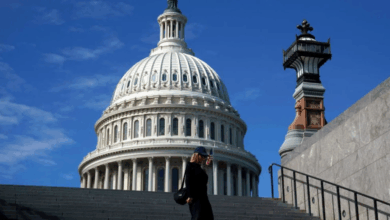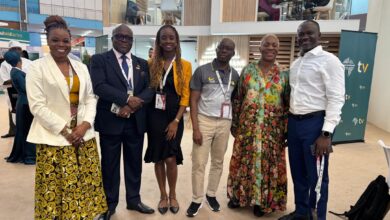Declaring state of emergency won’t solve galamsey – Ashanti Regional NDC Chairman


Ashanti Regional Chairman of the National Democratic Congress (NDC), Augustus Nana Kwesi Andrews,
Ashanti Regional Chairman of the National Democratic Congress (NDC), Augustus Nana Kwesi Andrews, says the declaration of a state of emergency on the galamsey menace will not solve the problem.
According to him, what is needed are sensitisation drives “to teach people how to mine responsibly.”
Speaking to JoyNews on The Pulse, Mr Andrews said, “Declaring a state of emergency won’t solve galamsey.”
Mr Andrews’ comments come amid calls from civil society groups for government to declare a targeted state of emergency, especially in illegal mining hotspots such as the Western, Central and Ashanti Regions.
However, President John Dramani Mahama, in his first engagement with civil society groups, said he has not yet acted because the national security apparatus has not advised a full emergency.
President Mahama stressed that while he has the constitutional power to take such a decision, it must be guided by security assessments.
“As of now, the National Security Council believes that we can win the fight against galamsey without a state of emergency. But the day they advise me otherwise — that we need a state of emergency — I will not hesitate to declare it,” he said.
Mr Andrews agrees, arguing that while the galamsey crisis has caused severe environmental and human damage — polluting rivers, destroying farmlands and weakening community livelihoods — imposing emergency powers alone will not address the deeper issues of education, regulation, and sustainable livelihoods.
He emphasised that mining and the broader extractive industry are activities Ghana must pursue, but “not at the detriment of the environment,” and highlighted the need for targeted sensitisation programmes at the community level to promote responsible mining practices.
As the debate continues over whether emergency powers should be invoked, Mr Andrews’ stance suggests a shift away from purely enforcement-based responses toward long-term capacity building and community engagement.
DISCLAIMER: The Views, Comments, Opinions, Contributions and Statements made by Readers and Contributors on this platform do not necessarily represent the views or policy of Multimedia Group Limited.
DISCLAIMER: The Views, Comments, Opinions, Contributions and Statements made by Readers and Contributors on this platform do not necessarily represent the views or policy of Multimedia Group Limited.
Source link





